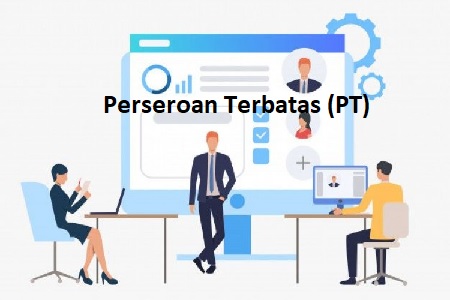Introduction
Indonesia’s economic landscape is vibrant and dynamic, driven by a diverse range of enterprises. Among the most prevalent business structures in the archipelago is the Perseroan Terbatas (PT), which translates to a Limited Liability Company. This legal entity has played a pivotal role in shaping Indonesia’s corporate sector, offering both domestic and foreign investors a robust framework for conducting business activities. In this article, we delve into the intricacies of Perseroan Terbatas, exploring its significance, structure, benefits, and challenges.
1. Understanding Perseroan Terbatas
Perseroan Terbatas, abbreviated as PT, is a legal business entity in Indonesia characterized by limited liability for its shareholders. Established under the Indonesian Company Law No. 40 of 2007, PTs have distinct legal personalities separate from their shareholders, enabling them to conduct business, own assets, and incur liabilities independently.
2. Formation and Registration Process
The formation of a Perseroan Terbatas PT involves several procedural steps. Firstly, prospective founders must draft the company’s articles of association, detailing key aspects such as business objectives, capital structure, and corporate governance. Subsequently, they must obtain approval from the Ministry of Law and Human Rights and register the PT with the Indonesian government. This process entails submission of necessary documents, including the articles of association, proof of capital deposit, and identification documents of shareholders and directors.
3. Capital Requirements and Shareholding Structure
One of the fundamental aspects of a Perseroan Terbatas PT is its capital structure. Indonesian law mandates a minimum authorized capital for PTs, which can vary depending on the nature of the business activities. Shareholders contribute to this capital through cash, assets, or a combination of both. The ownership structure typically comprises shares, with shareholders holding ownership stakes proportional to their capital contributions.
4. Limited Liability and Corporate Governance
A defining feature of PTs is limited liability, wherein shareholders are liable only to the extent of their capital contributions. This shield protects personal assets from the company’s liabilities, fostering investor confidence and risk mitigation. Additionally, PTs are governed by a board of directors and commissioners, responsible for strategic decision-making, financial oversight, and compliance with regulatory requirements.
5. Advantages of Perseroan Terbatas
Perseroan Terbatas offers numerous advantages for entrepreneurs and investors. Firstly, the limited liability structure safeguards personal assets, minimizing financial risk. Moreover, PTs enjoy perpetual succession, ensuring continuity in operations even in the event of shareholder changes or transfers. Additionally, PTs benefit from enhanced credibility and access to financing opportunities, facilitating business growth and expansion.
6. Challenges and Considerations
Despite its advantages, PTs encounter certain challenges and considerations. Compliance with regulatory requirements can be complex and time-consuming, necessitating meticulous attention to legal and administrative procedures. Moreover, bureaucratic hurdles and administrative inefficiencies may pose obstacles to business operations, requiring adept navigation and proactive management. Additionally, PTs must navigate cultural nuances and local business practices, particularly in diverse and decentralized markets across Indonesia’s vast archipelago.
7. Future Outlook and Opportunities
Looking ahead, Perseroan Terbatas is poised to play a pivotal role in Indonesia’s economic development and global integration. With ongoing regulatory reforms aimed at enhancing ease of doing business and attracting foreign investment, PTs stand to benefit from a more conducive operating environment. Moreover, advancements in technology and digitalization present opportunities for PTs to streamline operations, enhance efficiency, and tap into new markets. By embracing innovation, fostering transparency, and adapting to evolving market dynamics, PTs can continue to thrive and contribute to Indonesia’s prosperity.
Conclusion
Perseroan Terbatas represents a cornerstone of Indonesia’s corporate landscape, offering a robust framework for business activities and investment. With its limited liability structure, corporate governance mechanisms, and access to financing, PTs empower entrepreneurs to pursue growth opportunities and contribute to economic development. As Indonesia continues its journey towards sustainable growth and prosperity, PTs will remain instrumental in driving innovation, fostering entrepreneurship, and realizing the nation’s economic potential.

